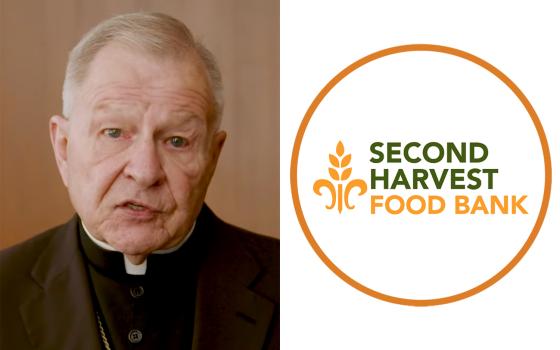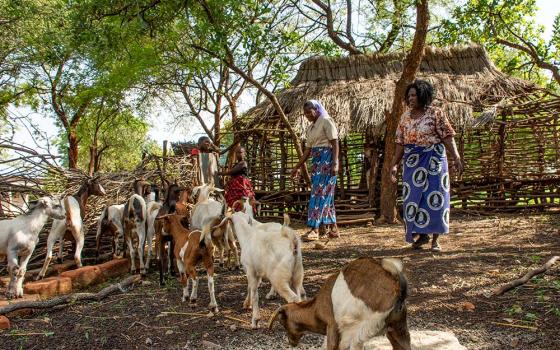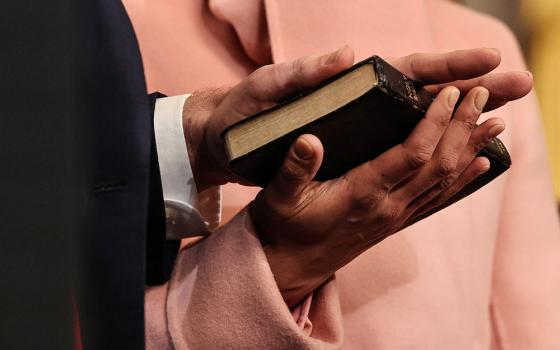
Rabbi Aryeh Azriel
It started with a conversation about parking lots.
Rabbi Aryeh Azriel, a senior rabbi at Temple Israel, a Reform Jewish congregation, was speaking to Bob Freeman, past president of Temple Israel, about building a new place. They both remarked how nice it was to share parking lots with a Methodist church and an Omaha theater on High Holy Days.
They planned to relocate to West Omaha and contacted Dr. Syed Mohiuddin, president of the American Muslim Institute, whose group was also relocating. The conversation moved from sharing parking lots to wondering about a campus where three communities -- Temple Israel, along with Muslim and Christian houses of worship -- would share what is now known as the Tri-Faith campus.
Temple Israel, the American Muslim Institute and the Episcopal diocese of Nebraska purchased the land in December 2011. A founding partner, the Episcopal diocese transitioned the partnership to Countryside Community Church, a United Church of Christ congregation, in April 2015.
Azriel, who is retiring in June, said he is not focusing so much on the Tri-Faith Center's impact on the rest of the world.
"I'm just interested in doing something here in Omaha, making sure the relationships are solid, meaningful and just," he said.
He added that it is possible that the same sort of initiative could work elsewhere, but "we have a long road before we accomplish this neighborhood that will be established finally in 2018."
Temple Israel opened on the campus in October 2013. The American Muslim Institute broke ground in May 2015 and Countryside Community Church is in the midst of making plans with an architect. A Tri-Faith Center, which will be shared by all three groups, will break ground sometime in 2016.
"We are going to call it Abraham's Tent," said Mohiuddin. "He's the father of all three religions and the building will be shaped like a tent."
Azriel said he's excited about what he calls the fifth room, which is the open ground and yard area between the buildings.
"It's not just important to build the buildings for each faith community to remain in their buildings, secluded almost like a fortress," he said. "The idea is to create a space in between that will engage all of the faith communities into work, social justice projects, celebrations and holidays."
Mercy Sr. Maryanne Stevens is the president of College of St. Mary in Omaha, as well as the chair of the board of directors for the Tri-Faith Initiative, the 501(c)(3) incorporated in 2006 to build the campus. She said she was interested in the initiative because "I believe there is bad religion that incites anger, violence and hatred, and good religion that incites the gifts of the Spirit -- charity, peace, patience, kindness and joy. All the major religions can turn bad and have at certain times in history."
"I also believe that the major Abrahamic religions have a big role to play in the world as the majority of humans who practice religion belong to one of these traditions," she continued. "Therefore, in large part, peace is dependent on the understandings fostered among and between them."
Azriel told NCR that the synagogue already had a relationship with the Muslim community. On Sept. 11, 2001, 40 members of Temple Israel surrounded the mosque "because we knew there would be some possible difficulties for the Muslim community to go through a day of quiet. We went to make sure we could keep quiet and safety for the Muslim community in town."
The acceptance by Countryside Community Church is something Mohiuddin called visionary.
"They were willing to give up a well-established building and move to a new place just because of this wonderful vision of the Tri-Faith Center and campus," he said. "For us, it was easier because we didn't have a big enough building, and the temple needed space."
The Rev. Eric Elnes, senior pastor at Countryside Community Church, said his congregation has a long history of interfaith work, and offered support for the project before the Episcopal diocese approached the church in January 2013 to become the Christian member. Once the invitation was extended, Elnes said the entire church went through a major discernment process, first to decide "if this is a question the Holy Spirit wanted us to be asking." In April 2015, the congregation accepted the invitation.
While the majority approved of the move, Elnes said some of the congregation disapproved because of the cost and because the church would be leaving a building that was in good shape and next to a high school.
"There was no example of changing just because of a vision," Elnes said.
Mohiuddin said the purpose of the American Muslim Institute is to provide educational resource facilities, cultural and civil service, and hopefully a medical clinic, which will provide free services. The institute also hopes to have a day care center and Sunday school for Muslim children to provide basic education.
"We hope the building will serve the Omaha community," added Mohiuddin. "The Muslim community is increasing in number. Most of these are first-generation immigrants from different parts of the country -- India, Pakistan, Middle Eastern countries. But also other Asian countries, including Iran, Indonesia and Malaysia."
He noted that "the University of Kabul [Afghanistan] and the University of Nebraska at Omaha have a working relationship, even before all this trouble started, so a lot of migration from Kabul [comes] here."
Each leader noted the generosity of the Omaha community. Azriel called Omaha a "well-kept secret" and said "people are really interested in creating a special community here."
Elnes called attention to the strong embrace of faith life, saying, "Faith really changes things when you take it seriously."
Azriel said people might be surprised this campus is possible in a time when there is a lot of darkness, bigotry and hate in the country.
"A lot of people are willing to set aside everything and try to dream the proper dream," he said. "This idea of intentionally coming together to establish a dream that maybe not everyone has the capacity of dreaming is unique. And we can do it in Omaha."
"There is nothing like this in the whole world. This is the first of its kind," added Mohiuddin. "It will provide a message that we can live together, that we can be neighbors and we can share our paths, our dreams, and our hopes and not fear each other. I think it is the fear of the unknown, which creates our problems."
[Elizabeth A. Elliott is an NCR Bertelsen intern. Her email address is eelliott@ncronline.org.]


